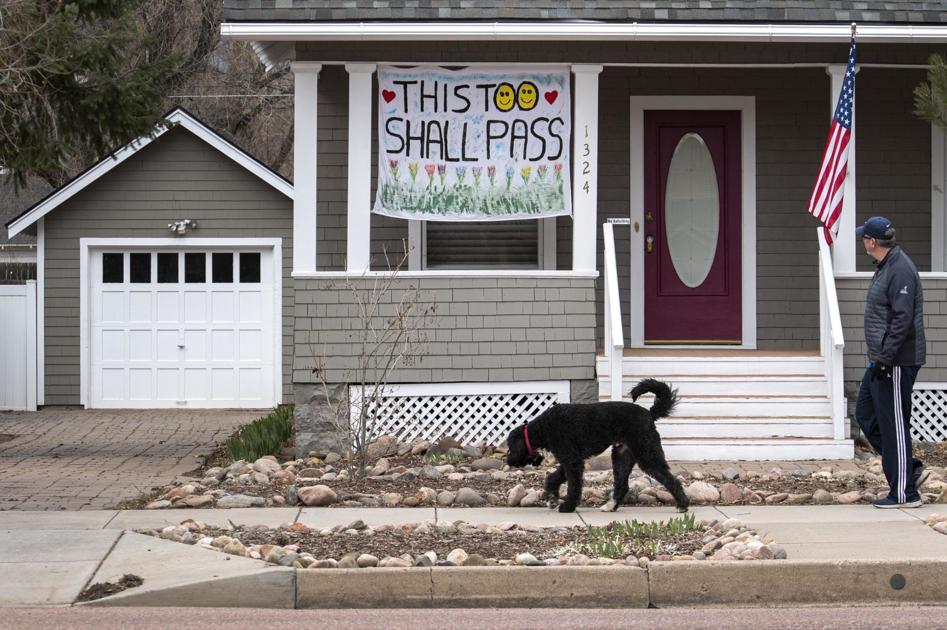Mass deaths are not an option. Neither is ruining the economy. So said Colorado Gov. Jared Polis during a news conference Monday. He has the task of orchestrating the re-opening of Colorado businesses in a manner swift enough to save them before it is too late.
Given that Polis understands the suffering and death associated with economic destruction, he should accelerate his re-opening plan. Tell leaders in communities to use their best judgment and open all businesses if their infection rates are stable or declining. Encourage Coloradans to return to normal life with masks, social distancing, hand washing, temperature monitoring, and other reasonable precautions.
We dodged mass coronavirus death and will continue doing so, regardless of when businesses open. We have not dodged economic peril.
As of Monday afternoon, Colorado’s COVID-19 death count was 851. That is 851 too many. Each of these deaths represents unimaginable loss among survivors of the deceased. Nevertheless, this has not been a “mass death” crisis.
The 851 lost souls represent 0.01% of Colorado’s 5.8 million residents. It is a number only slightly higher than annual deaths caused in our state by traditional flu strains. It represents about one-tenth of Colorado’s annual cancer and heart disease deaths. We lose three times more residents each year to accidents.
We cannot and should not try to save every life. If that is the goal, we must outlaw cars.
The 851 deaths include people who died of other causes, such as heart attacks or strokes, who also had COVID-19. It is a safe bet the data for 2020 will show an apparent reduction in traditional causes of death because of coroners or doctors checking “COVID-19” when someone dies of a pre-existing condition complicated by the virus.
“People may have had a heart attack and may have had COVID at the same time. Which do you assign the death to when COVID may have been a complicating factor?” said Dr. Eric France, chief medical officer at the Colorado Department of Health and Environment, talking to The Gazette’s editorial board.
Of the 0.01% of deceased Coloradans, about 54.29% were over the age of 80 and suffered from comorbidities that made them vulnerable to death from any type of illness. Those at least age 70 account for 78.61% of deaths, most of whom suffered from other life-threatening conditions. Most of Colorado’s COVID-19 deaths have occurred in nursing homes or other senior living environments.
We must do everything within our power to reduce the toll this disease poses to our elder residents. Though none are expendable, protecting them does not require the ongoing ruination of jobs and businesses that do not create gatherings of elderly, high-risk individuals with complicating concomitants.
Colorado Springs Mayor John Suthers, who plans to meet with Polis Tuesday afternoon, spoke with The Gazette on Monday.
“We’re well-positioned to phase in limited restaurant capacity,” Suthers said, explaining his overall desire to get businesses going again.
Suthers said county health officials and El Paso County commissioners will decide whether to apply for a waiver from the state’s phased-in reopening plan. Suthers praises El Paso County Public Health Deputy Medical Director Dr. Leon Kelly for understanding “the economy could kill as many as the coronavirus if we don’t do it right. He’s very sensitive to that.”
Gov. Polis told The Gazette’s editorial board April 28 he supports communities expediting re-opening if their COVID data looks good. He specifically mentioned the possibility of El Paso County opening restaurants sooner than other parts of the state.
Metro Colorado Springs contains 13% of Colorado’s population but has only 6.7% of the state’s confirmed COVID-19 cases, 8.9% of the overall deaths, and only 2.5% of hospitalizations. The epidemic does not risk overrunning our health care systems.
The numbers and the risks of this disease do not support the continued economic torture of business owners and the people they employ. We cannot continue forcing unemployment, driving up suicides, increasing malnutrition and other facets of poverty, to avert a disease that threatens the lives of a fraction of a percentage of the public.
Save the economy before it’s too late. Colorado avoided mass viral death, but the job is not done. History will judge Polis and community leaders on whether they reversed an economic crisis before it destroyed even more lives.
This content was originally published here.

